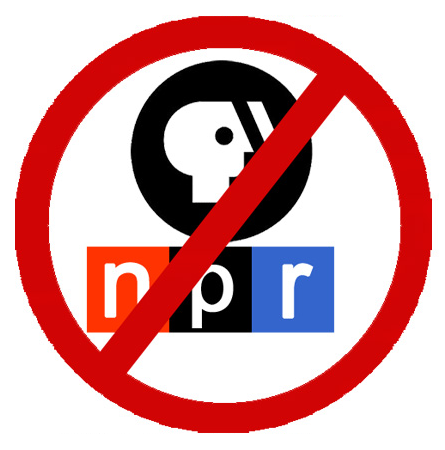By Peter Hong
Recall the flak Mitt Romney took in 2012 for declaring war on Big Bird when the candidate suggested that he would cut federal subsidies for PBS? Well, Sesame Street may be on HBO now, but the fight over defunding the Corporation for Public Broadcasting (CPB) is being rekindled. And it’s about time.
The CPB was incorporated fifty years ago as a private, nonprofit corporation; in fact, its website proudly proclaims it as “A Private Corporation Funded by the American People.” (emphasis mine)
The CPB was created at a time when broadcasting options in America were limited. In 1967, before cable and the Internet, most Americans had access to only ABC, NBC, and CBS.
Today, the average U.S. household receives nearly 200 TV channels, not including a glut of terrestrial and online listening and viewing options.
In spite of this record-breaking broadcasting surplus, NPR and PBS still receive over $400 million in federal funding each year. This is particularly galling, given that America’s gross national debt as a percentage of GDP has nearly tripled from 38 percent to 106 percent over the life of publicly subsidized broadcasting.
Federal funding not only comes from taxpayers, but gives NPR and PBS a built-in advantage over their competitors when it comes to raising money. Yes, like their “commercial” brethren, publicly subsidized broadcasters unabashedly sell sponsorships to corporations (horror of horrors) and foundations. And, as anyone who has sat through a PBS fundraising campaign knows, they raise individual contributions from “viewers like you.”
Confession time: I use publicly subsidized broadcasting. I watch documentaries on PBS, and listen to “A Prairie Home Companion” and old time radio shows on NPR. I even listen to the drive time “news” shows when the bias does not lead me to drive off the road.
I also pay for it by giving money to my local PBS and NPR affiliates, which allows me to show off my gift tote bag without guilt. After all, payment for services or goods that I choose to use is the American way.
The problem is you’re paying for it too, whether you use the products and get the tote bag or not. To the tune of about half a billion dollars a year, your tax dollars pay for a product that you may not use, simply because you’re not interested in the auctioning off of the original mold used to make penicillin.
Or you may actually find some of the content offensive or insufferably biased. Consider this NPR annotation of President Trump’s recent address to Congress, which reads more like talking points from the DNC than a news report. Appropriate for Rachel Maddow or progressive talk radio — absolutely! But this time, your tax dollars paid for it.
In a 2012 report, “Alternative Sources of Funding for Public Broadcasting Stations,” the CPB stated that ending federal funding for publicly subsidized broadcasting would severely diminish, if not destroy, public broadcasting service in the United States. That’s right: the CPB actually argues that it cannot make up for any loss in federal funding — no matter how many tote bags they offer.
Yet, according to its own published “Audience Profile,” NPR brags to commercial sponsors that its audience skews heavily toward the wealthy and powerful. NPR listeners are:
- 74 percent more likely than other Americans to earn greater than $100,000 in annual income;
- 133 percent more likely than other Americans to be top management; and
- 148 percent more likely than other Americans to be C-Suite executives.
In other words, you may not watch PBS or listen to NPR, but your boss might and your boss’ boss probably does. And the CPB wants you to keep paying for them.
U.S. Rep. Doug Lamborn (R-Colo.) has reintroduced legislation (H.R. 726 and H.R. 727), which would defund the CPB and NPR. Upon introducing the legislation, Lamborn said, “Republicans and the new Administration need to demonstrate that we take our fiscal responsibility seriously. American taxpayers do not want their hard-earned dollars funding superfluous government programs just because that is the way things have always been done.”
Also circulating are reports that the Trump Administration plans to ax federal funding for publicly subsidized broadcasting. In other words, help may be on the way, beleaguered taxpayer!
In his address to Congress, President Trump proclaimed “the time for small thinking is over.” Publicly subsidized television and radio in an era of cable, Internet, and record deficits is an early and easy test of this declaration.
Are Republicans prepared to cut the cord?
Peter Hong is a contributing reporter at Americans for Limited Government.








